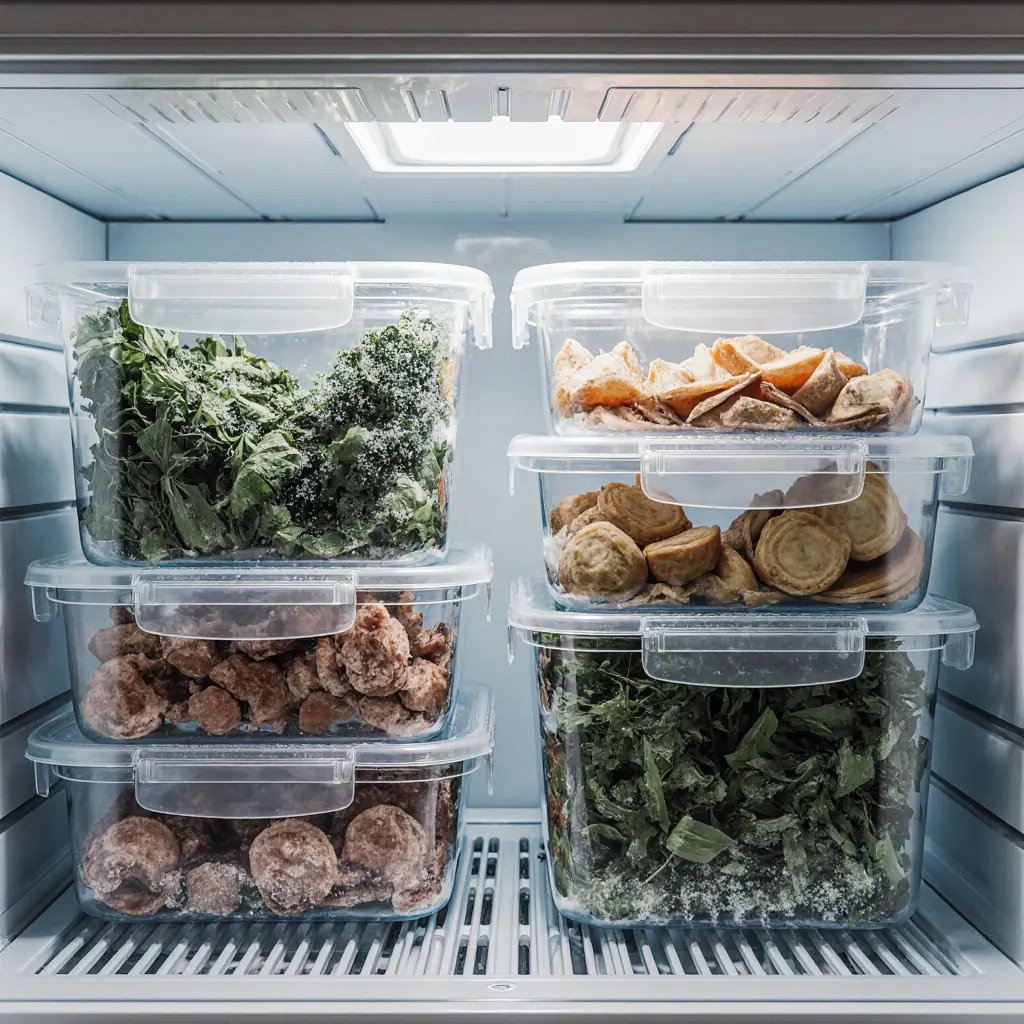Freezing raw or cooked fruit: a how-to guide

What's better than freezing to keep your fruit fresh... for a long time? Yes, but be careful: not all fruits react the same way to the deep freeze. So, should you freeze them raw or cooked?
Why freeze fruit?
Because it’s a simple, anti-waste method that lets you enjoy your UglyFruits even out of season. Plus, frozen fruit means smoothies, crumbles, or compotes ready in just a few blender pulses.
But to keep their taste and texture, you’d better know how to prep them. Spoiler alert: no, you don’t just toss whole strawberries in the freezer like ice cubes in rosé. ?
Fruits to freeze raw
Those that hold up well in the cold without falling apart before your eyes.
- Berries (raspberries, blueberries, blackcurrants) → freeze them spread out on a tray so they don’t stick together, then transfer to a bag
- Grapes (yes, they make awesome frozen snacks)
- Bananas (peeled and cut in pieces = homemade ice cream base)
- Mango / pineapple / kiwi → peeled and in pieces
Why raw? Because they handle freezing well and keep good texture for smoothies or no-bake desserts.
Fruits to freeze cooked or as compote
Those that don’t like the cold when they’re naked.
- Apples, pears, peaches, plums: steamed or as compote: they’ll transform into delights for quick tarts or morning porridge
- Rhubarb (blanched before freezing)
- Apricots (best results as coulis or purée)
Why cooked? Because they’re water-rich: frozen raw, they become mushy, stringy, or just plain sad. Cooked, they reveal all their tenderness and natural sweetness.
And which ones to avoid?
Watermelon, cantaloupe, whole orange: guaranteed ruined texture. Better to eat them fresh or turn them into juice/coulis to freeze.








